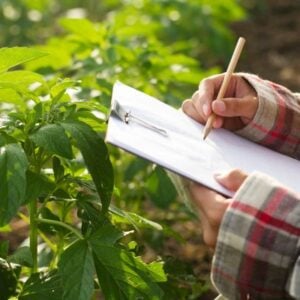In Mzimba, Malawi, farmers like Mefa Kapokosa depend heavily on agriculture for their families’ survival. For years, Mefa struggled to produce enough maize due to erratic rainfall and prolonged dry spells caused by climate change. Although she had received advice from agriculture extension officers, it was not until she began engaging with field demonstration plots in her community that she saw meaningful change. Observing firsthand how different land and water management practices impacted crop performance gave her the confidence to adopt methods such as zero tillage, soil mulching, and the use of organic manure. As a result, even in years of low rainfall, her crops have been more resilient and productive.
To encourage broader adoption of sustainable practices, the Food and Agriculture Organization (FAO), with funding from the Government of Flanders, is implementing the Sustainable Land and Water Management (SLM) project in Malawi. The project integrates land tenure security, climate-smart agriculture, and watershed management into agricultural extension services. By strengthening the Ministry of Agriculture’s existing structures, the project enhances the transfer of research-based knowledge and innovations to farmers. Central to this approach are demonstration plots, which provide farmers with practical learning platforms to observe, test, and replicate new technologies on their own fields.
One example in Chasato section features a six-acre maize demonstration plot showcasing a variety of low-cost sustainable practices, including the use of Mbeya organo-mineral fertilizer, mulching, pit planting, vetiver grass, organic manure, and swales for water harvesting. These plots, often situated in highly visible areas, attract interest from community members and serve as a catalyst for wider adoption. Farmers are directly involved in managing the plots, which helps them build confidence in the technologies before applying them individually.
The initiative has also been scaled out through field days, where farmers from other communities are invited to learn about the technologies and share them more broadly. So far, more than 1,700 farmers, including over 1,100 women, have participated in these learning activities. According to the Mzimba district agriculture office, this participatory approach has already led to increased adoption of sustainable practices and noticeable improvements in maize yields, helping communities strengthen food security and resilience in the face of climate change.






